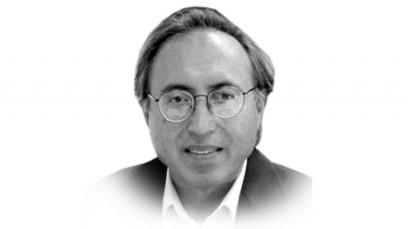
There are many ways to define and determine what the progress is. If we take a universalistic idea of progress, it means advancement in science, technology, culture, and human sciences. Human and industrial development is an essential part of progress that is also associated with positive change, evolution of society and improvement in human conditions.
There is another thesis that competes with the failure proposition; Islam, the religion itself and its culture are not in harmony with the universal ideas of modernity. This is at the base of much of the intellectual stuff of orientalists and their uncritical followers in the Muslims societies. They argue that unless Islam has gone through re-interpretation, reform and revision on fundamental modern day issues of politics, economy and social attitudes, the Muslim societies will continue to face a duel within.
From this point of view, the roots of trouble of the Muslims societies are within. What are these troubles? They can be summed up as follows: dictatorial regimes, corrupt governments, plundering elites acting like criminal gangs, weak states and institutions and serious issues of injustice, inequality and poverty. No outside assistance can help much until some social revolution and reforms happen from within.
There is also an Islamist critique of the Muslim societies and states. Their narratives are also woven around failure, but they look for causes outside. They argue colonialism disrupted natural flow of cultural and societal progress and subverted institutional heritage. The Islamists take on the modern world order is that it is hegemonic, imperialistic and protects some states occupying Muslim lands and national predatory ruling elites because they advance the “imperialistic” interests.
There is no doubt that slow progress, underdevelopment, and unequal distribution of rewards have spanned extremist ideas and movements. And a weak tradition of critical self-refection and a conspiratorial worldview has deflected our attention from real reasons of ‘failure’, both domestic as well as external.
First of all let us disabuse ourselves of some prevalent false notions in this debate. Not all Muslim states and societies have failed; and even in failing states like Pakistan, not everything has failed. Turkey and Malaysia are two excellent examples of success. Several sectors of Pakistani state and society at different periods in history have recorded greater success than other sectors and at other times.
Second, the idea that Islam and modernity are incompatible is rooted in certain cultural prejudice and philosophical ambiguity about the relationship between religion, politics and society at large. There is also a partial reading of Muslim history and who represents the Muslim societies. The tiny radical minority in the Muslim societies and its violent politics equally represent a partial view.
This angle diverts our attention from the real culprits: the greedy, illegitimate and immoral ruling elites that have been getting away with every wrong and crime they have committed against their own peoples and societies.
The Muslim societies, including Pakistan have had modernist vision—representative institutions, constitutionalism and modern ideas of justices and social equality. The challenge is how to defeat political rhetoric of corrupt elites and found politics on true principles of modernity—neutrality of state among diverse religious communities and constitutionalism.
Published in the Express Tribune, June 7th, 2010.












COMMENTS (12)
Comments are moderated and generally will be posted if they are on-topic and not abusive.
For more information, please see our Comments FAQ